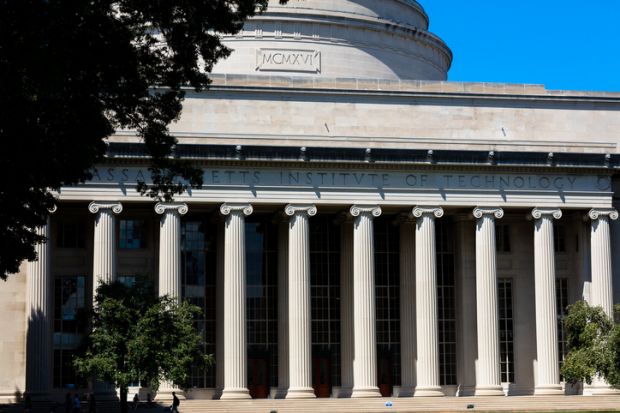The Massachusetts Institute of Technology has concluded its investigation into the Jeffrey Epstein scandal by excusing the actions of its top leadership on the grounds that the university’s policy was not sufficiently clear on handling donations from sex offenders.
MIT, issuing a 63-page report by an outside law firm that spent four months probing Epstein’s financial ties to the institution, acknowledged that its general counsel, its treasurer and its chief fundraiser had helped to arrange and to hide donations given by the convicted sex offender.
Two of the officials already have left MIT and the third is departing this spring. In a statement, however, MIT’s president, Rafael Reif, expressed both regret and understanding for their decisions to secretly cultivate ties with Epstein.
“Knowing these individual administrators,” Professor Reif wrote to the MIT community, “I am certain that they were acting in good faith, striving to advance the work of our faculty.”
In MIT’s only direct sanction stemming from the probe, Professor Reif announced that Seth Lloyd, a professor of mechanical engineering, has been placed on paid leave. He is described in the report as having personally received unreported donations from Epstein.
“I have asked his department head to consider any appropriate action,” Professor Reif wrote of Professor Lloyd.
Much of the blame for Epstein’s ties to MIT already had fallen on Joi Ito, a former MIT professor who served as the Media Lab’s director and helped to arrange and to hide donations and contacts with Epstein. Professor Ito resigned from MIT in September after The New Yorker revealed his actions.
The MIT case is among numerous examples of Epstein – who died last August in a New York jail cell – using his billionaire status to cultivate powerful allies within and well beyond academia.
The institute’s just-concluded investigative report affirmed earlier media reports that Epstein made some $850,000 (£655,000) in donations to MIT – mostly to the renowned Media Lab – after his 2008 conviction and guilty plea to charges of sexually abusing underage girls.
But the probe conducted by the Goodwin Procter law firm shed little light on evidence uncovered in outside media reports that Epstein played key roles in securing for the Media Lab donations of $5.5 million (£4.2 million) from Leon Black, a co-founder of Apollo Global Management, and $2 million from Bill Gates, a co-founder of Microsoft.
The law firm said that its interviews with 59 people and its review of more than 610,000 emails and documents found “no evidence” that Mr Black or Mr Gates were relaying money provided by Epstein. The firm noted that Mr Gates also has denied any such activity, while Mr Black “has not specifically addressed” the matter.
But back in 2013, the Goodwin Procter report affirmed, the three senior MIT officials – the general counsel, Gregory Morgan; the treasurer, Israel Ruiz; and the vice-president for resource development, Jeffrey Newton – agreed to let Professor Ito continue soliciting donations from Epstein on the grounds that the efforts not be publicised.
Under that arrangement, Epstein held multiple meetings on the MIT campus with numerous faculty and staff, the report said.
Hoping to take Epstein’s money without allowing him to benefit from the resulting publicity, MIT said in a statement, the three top officials had “created an informal framework by which Epstein’s gifts were allowed within certain guidelines”.
In his letter to the MIT community, Professor Reif described the “deep regret” felt by Mr Morgan and Mr Newton, who already have left MIT, and by Mr Ruiz, who is leaving in the spring.
Among his recommendations for MIT going forward, Professor Reif said he wants clear policies for handling controversial donors, and for preventing visits to campus by people who might pose a threat. He also called for new steps to encourage whistleblowers, given that earlier warnings by people in the Media Lab and central administration had been “disregarded”.
Professor Reif also promised an overhaul of the culture of the Media Lab and of MIT more broadly, given the problems he has heard of the “ways that disrespect, harassment, marginalisation and abuses of power are harming our community”.
Register to continue
Why register?
- Registration is free and only takes a moment
- Once registered, you can read 3 articles a month
- Sign up for our newsletter
Subscribe
Or subscribe for unlimited access to:
- Unlimited access to news, views, insights & reviews
- Digital editions
- Digital access to THE’s university and college rankings analysis
Already registered or a current subscriber? Login







